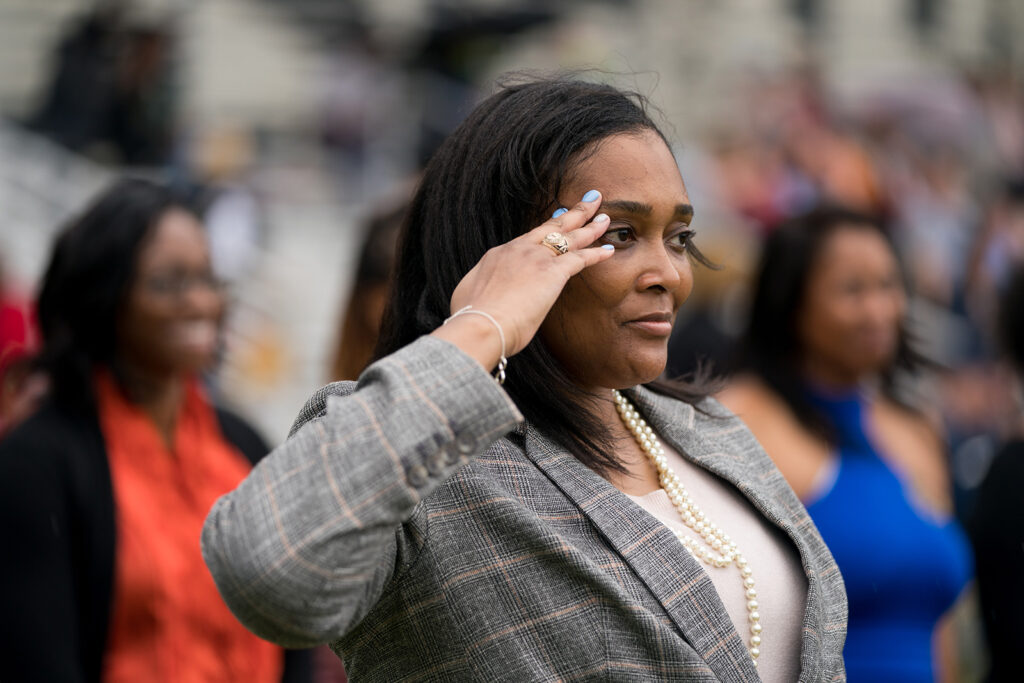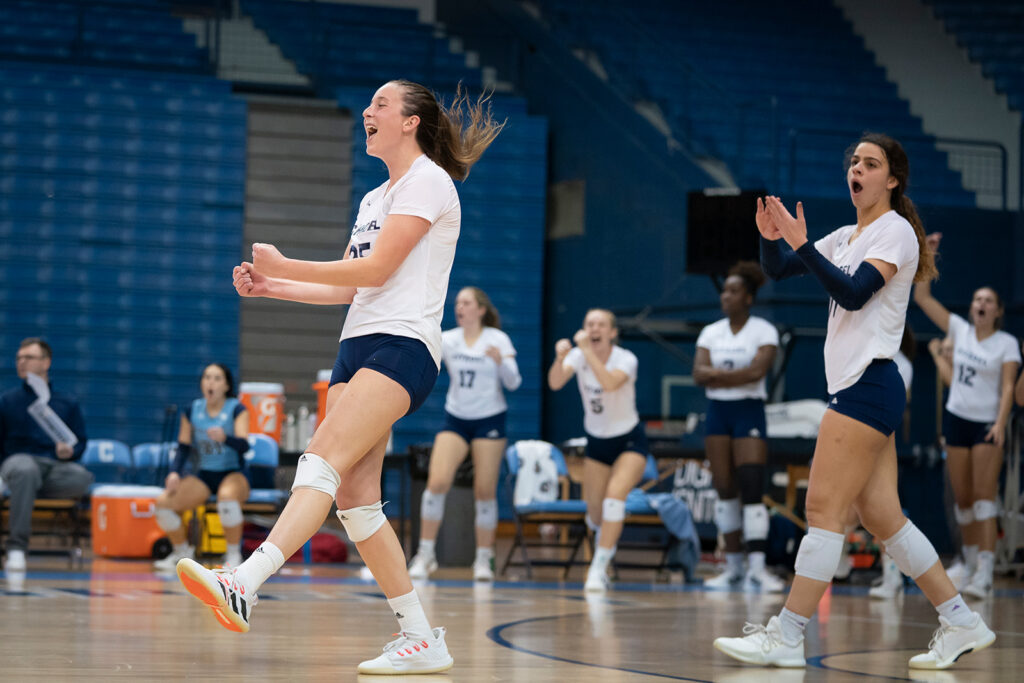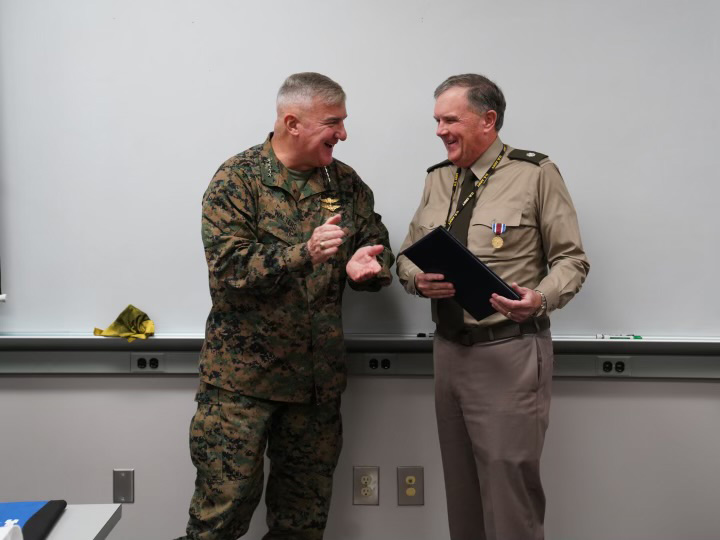“Ten-hut!”
Retired Army Lt. Col. Platte Moring III brings his political science class to attention, just as he was
trained to do when a senior officer
is present.
The class of
cadets, now
standing, watches as Citadel President Gen. Glenn M. Walters, U.S. Marine Corps (Ret.), ’79, and Provost Sally Selden, Ph.D., walk into the room for a surprise visit.
“You’re all
going to
participate in
something,” says Walters. “Professor Moring got an
award for
his long and dedicated service to our
country. In
a minute, I’m going to call attention to orders, and we’ll read the
citation.”
The Department of Defense Medal for Distinguished Public Service is the highest award presented to a civilian by the secretary of defense. The award recognizes Moring’s work in the DOD Office of General Counsel.
“I was just flabbergasted by the whole thing,” says Moring. “I had no idea it was coming—it was a great surprise. It’s not every day you get pinned by a four-star general and the president of the college with the provost present. My class was totally impressed.”
The award citation lists some of his many achievements after retiring from the U.S. Army, including overseeing the writing of the statute that created U.S. Space Force. But it is more than just his accomplishments in the DOD that brought Moring to The Citadel.
In 2003, he was called
out of reserve status to serve
in Operation Iraqi Freedom, but just before Moring
was set to leave the country, then-President Bush announced the end of the war in Iraq. Moring decided to
punch his ticket and continue with his plans
to deploy, this time to Afghanistan. There, he
was
appointed commander of the Kabul compound.
On his third day, he met with Lt. Gen. Karl Eikenberry, who was in charge of security sector reform.
Moring walked into his office and saluted.
“Colonel, what’s that on your collar?” Moring remembers the general asking. Moring told him that it was the insignia
of the Judge Advocate General’s Corps, but Eikenberry already
knew that.
“Well, no lawyer’s running my compound,” Eikenberry said.
At first Moring was
insulted because he knew he was fully capable of
taking charge. Then he
realized that Eikenberry was suggesting that he make better use of his skills. Eikenberry immediately asked him if he would like to work on the Afghanistan constitution instead.
Moring then spent his time working with the Constitution Commission, even drafting language for the document specifying civilian control of the military — a requirement for any nation applying to join NATO. In January 2004, after months of work, he attended the country’s constitutional convention.
“I was sitting with my interpreter, and President Karzai was speaking. Suddenly, everybody stood up and then everybody sat down. I asked my interpreter what just happened, and he said, ‘We just votedfor the Afghanistan constitution.’ So it got passed. We were so proud in 2004 that we had a plan for Afghanistan. We had hope for these people and their new, democratic constitution. And then, of course, 15 years later, everything fell apart.”
However, there were bright spots in between those two key events, both for Moring and for the new nation as a whole. He taught at Kabul University, educating men and womenabout law. The women—living in a world that suddenly allowed them to attend school and be seen in public without a burka—made the biggest impression on Moring. He remembers them as quiet, always sitting together in front. On their final exams, the students wrote their names in Arabic. Moring, who could not read them, graded the students blindly. In the end, the best student in the class was a woman named Naomi, who would go on to get a master
of law degree and teach international law at Herat University in western Afghanistan. He has not
heard from Naomi since the country—and its constitution—fell. He can only hope she was able
to get out.
These are the real-life experiences Moring brings with him to the Military College of South Carolina. These are the lessons the cadets in his class benefit from every day.
“The cadets have a sense of honor that you do not see at any other American university…”
“I think everything I’ve done to date has brought me to this point, whether it’s being a civilian lawyer, a military lawyer or teacher. I think my collective experiences have placed me here at The Citadel so that I have an opportunity to give something back to the younger folks,” he says. “The cadets have a sense of honor that you do not see at any other American university, and they’re trying to do the right thing. They do want to learn and they do want to succeed, not necessarily as military officers, but they want to become leaders. And I’m all about leadership.”



